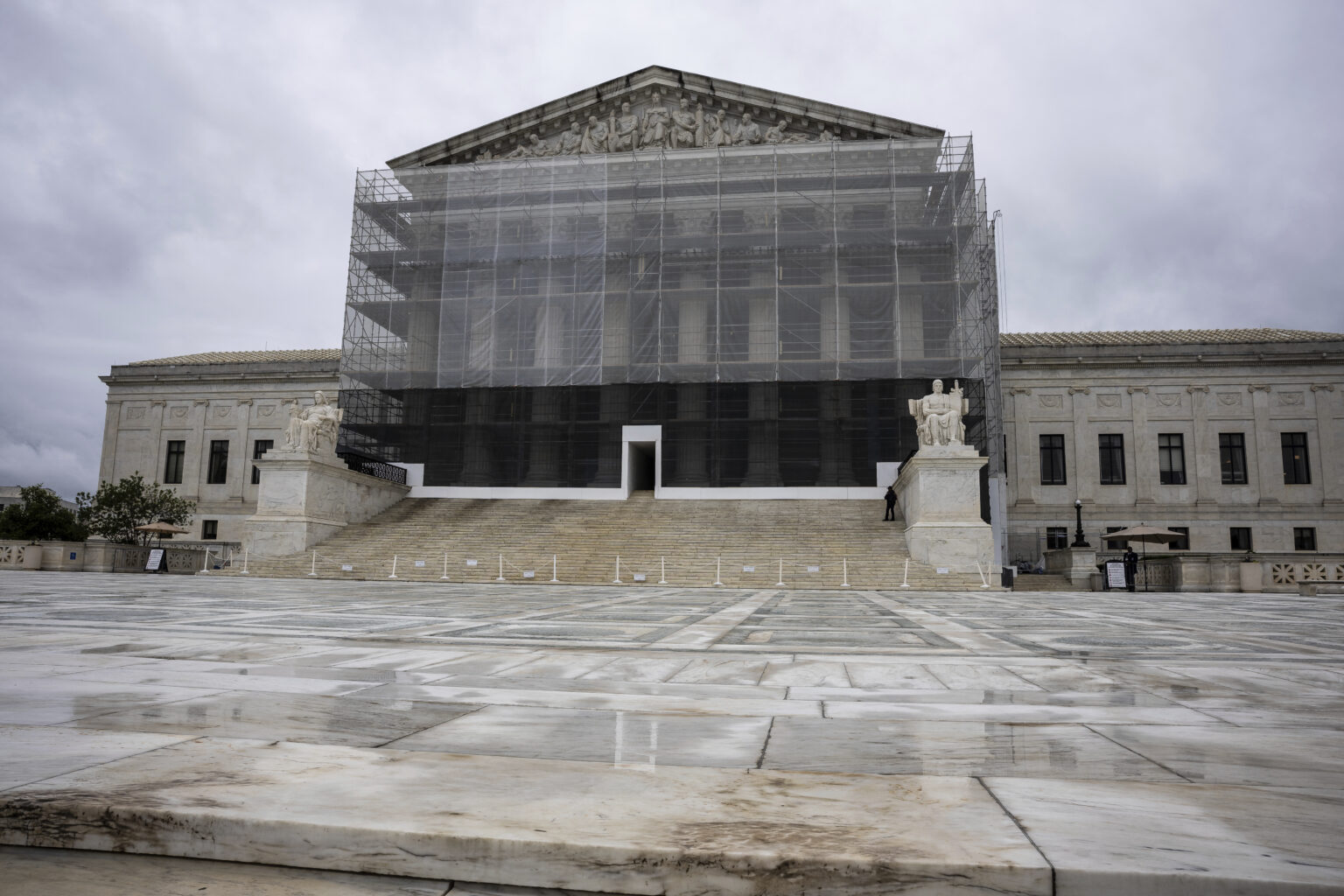The Supreme Court on Monday agreed to hear a Republican-led challenge to campaign finance limits on coordinated spending between candidates and political parties, potentially blowing up the money-in-politics landscape ahead of the 2026 midterms.
A ruling in favor of the Republican plaintiffs would deliver the GOP’s biggest campaign-finance win since the landmark 2010 Citizens United case, fundamentally changing how party committees spend tens of millions of dollars every election cycle, particularly on TV advertising. A GOP victory could allow party groups to pour unlimited amounts into ads in competitive races across the country, making it easier for campaigns to benefit from that spending.
Republicans’ top congressional campaign committees — the National Republican Senatorial Committee and the National Republican Congressional Committee — brought the case with then-Sen. JD Vance in 2023, arguing that federal law limiting coordination between candidates and political parties violates the First Amendment.
The Supreme Court’s decision to take up the case after the conservative 6th Circuit upheld the spending limits suggests the court is considering reversing decades-old precedent. And it comes after the Justice Department took the unusual step last month of choosing not to defend the constitutionality of the law and encouraging the high court to rule.
“In the Department’s view, the challenged provision violates political parties’ and candidates’ core First Amendment rights under the Court’s recent precedents on campaign-finance restrictions,” Solicitor General D. John Sauer said in a June letter to House Speaker Mike Johnson.
Party committees can currently coordinate with candidates for between $63,600 and $127,200 in spending for House races, and $127,200 to $3,946,100 for Senate races, depending on the size of the district or state.
Those funds often go to purchasing television ads, which are cheaper when bought in concert with a campaign than entirely by outside groups. If the limits on coordinated spending are overturned, party groups would dramatically accelerate their purchase of ad time.
Democrats oppose the effort to overturn the limits, warning that doing so would cede political power to large donors. That would advantage Republicans, who generally rely less on small-donor fundraising. While individual donors can only give up to $3,500 to a campaign per election, they can send donations up to $44,300 per year to national party committees.
The NRSC and NRCC hailed the court’s decision to hear the case during its next term this fall.
“The government should not restrict a party committee’s support for its own candidates,” Sen. Tim Scott and Rep. Richard Hudson — the chairs of the committees — said in a joint statement. “Coordinated spending continues to be a critical part of winning campaigns, and the NRSC and NRCC will ensure we are in the strongest possible position to win in 2026 and beyond.”
The court on Monday also allowed the Democratic National Committee, Democratic Senatorial Campaign Committee and Democratic Congressional Campaign Committee to join the case in opposition to the GOP. Those groups sought to intervene after the Justice Department declined to defend the law, and the Justice Department and the Republican plaintiffs told the court they did not mind the intervention.
A victory for Republicans in this case is far from guaranteed, and some legal experts have already argued there’s plenty of precedent to counter the core argument.
They point to a 2001 Supreme Court ruling in which the court found “little evidence to suggest that coordinated party spending limits adopted by Congress have frustrated the ability of political parties to exercise their First Amendment rights to support their candidates.”
But the ideological makeup of the court was much different that year, and in that ruling, Justice Clarence Thomas — the only justice still serving from that time — dissented.
“This provision sweeps too broadly, interferes with the party-candidate relationship, and has not been proved necessary to combat corruption,” Thomas wrote at the time.
Read the full article here


